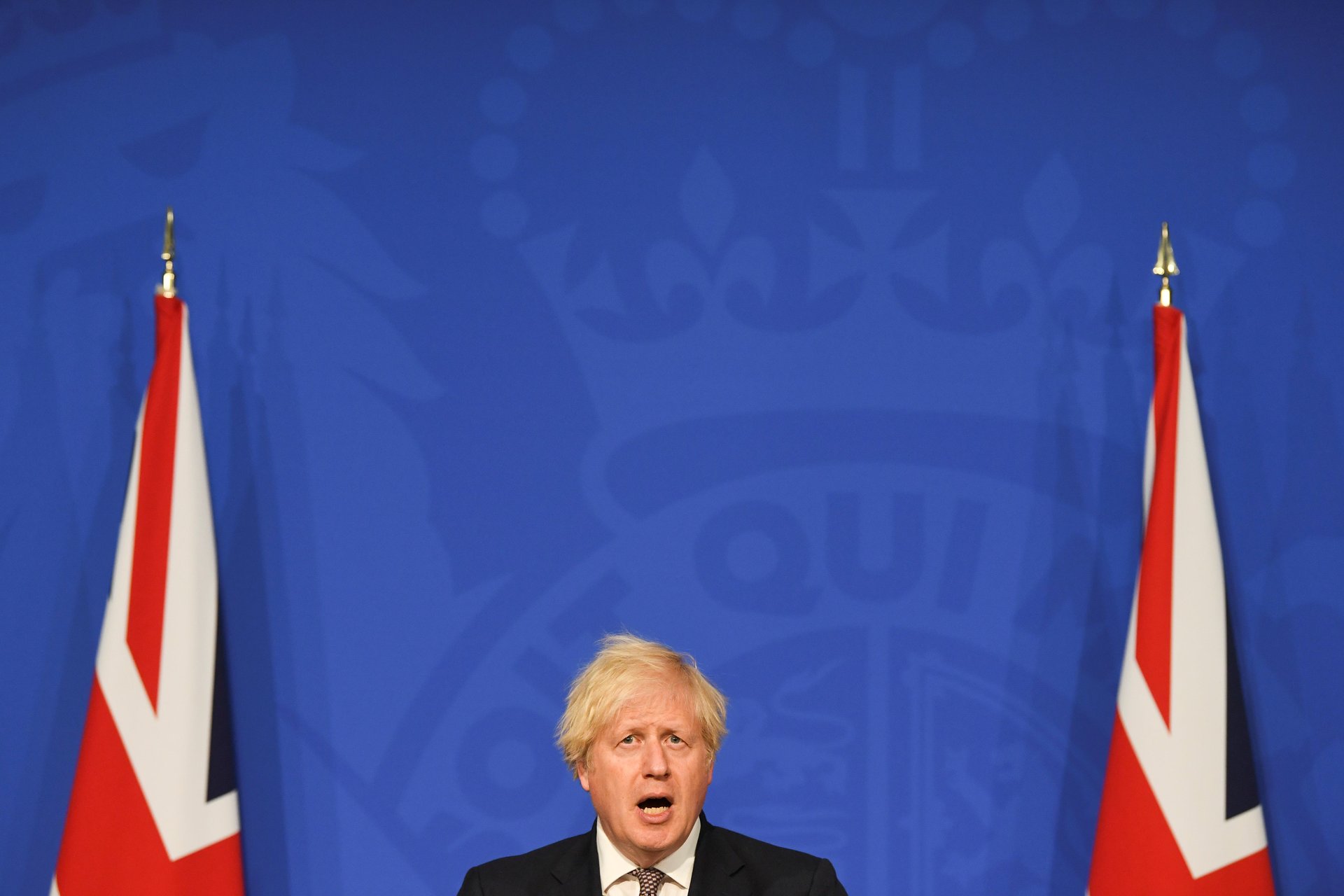What are the new Covid rules in the UK?
UK prime minister Boris Johnson announced today (July 5) that most restrictions related to the spread of Covid-19 will end in England on July 19, nicknamed “Freedom Day,” as part of the fourth and final stage of the roadmap out of lockdown.


UK prime minister Boris Johnson announced today (July 5) that most restrictions related to the spread of Covid-19 will end in England on July 19, nicknamed “Freedom Day,” as part of the fourth and final stage of the roadmap out of lockdown.
Restrictions were initially set to be scrapped on June 21 but the decision was delayed four weeks because the government hoped to increase vaccinations in the face of the more transmissible Delta variant. More than 86% of UK adults have received at least one dose of a vaccine against Covid-19 and 64% are fully immunized, but the variant is still spreading, mostly among the unvaccinated or the partially vaccinated: 178,128 people tested positive in the past seven days, an increase of 53% compared to the previous week.
The final decision on ending Covid-19 restrictions will be made on July 12, Johnson said today, leaving open the possibility of further delays. “We must find a new way of living with the virus,” he said, explaining that in spite of the rule change, “this pandemic is far from over and it will certainly not be over by 19th.”
How will UK Covid restrictions change on July 19?
From July 19, England will stop legally enforcing restrictions around indoor gatherings, mass events, and social distancing, and instead rely on people’s good judgment. The goal of the new rules are to “allow people to make their own informed decisions about how to manage the virus,” Johnson said.
According to the government (pdf), other rules that will change from July 19 include:
👷 Employers can ask their staff to return to the office.
🥳 There will no longer be limits on how many people or households can gather indoors or outdoors.
😷 Face masks will no longer be mandatory; the new rules will recommend that people wear masks when they “come into contact with people [they] don’t normally meet in enclosed and crowded spaces.”
📏 People will no longer be forced to keep a 2 meter distance from one another, unless they are getting off a train or plane at a UK border, or they have tested positive for Covid-19.
📱Restaurants, stores, and other businesses will no longer have to ask customers to check in using the National Health Service (NHS) Covid-19 app, but will be encouraged to offer it as an option.
What other Covid requirements will change in the UK?
The remaining parts of the UK—Scotland, Northern Ireland, and Wales—will set their own timelines on lifting Covid-19 restrictions.
In the next few days, Johnson said, England’s Department for Education will lay out how restrictions will be lifted in school settings, while the Department for Transport will explain how quarantine requirements may change for fully-vaccinated travelers entering England from countries on the amber list.